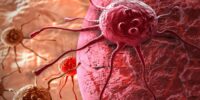Rotavirus in Adults: Uncommon but Important – Symptoms and Management

Do you know that rotavirus, usually associated with children, can also affect adults? It may be uncommon, but it’s important to be aware of the symptoms and management.
In this article, we will provide an overview of rotavirus in adults, discuss the incidence and risk factors, help you recognize the symptoms, and cover diagnostic tests and treatment options.
We will also delve into preventive measures, potential complications, and supportive care for rotavirus in adults.
Key Takeaways
- Rotavirus can affect adults, especially those with weakened immune systems or in close contact with infected children.
- Symptoms of rotavirus in adults include severe diarrhea, vomiting, abdominal pain, fever, and dehydration.
- Diagnosis of rotavirus in adults involves stool sample analysis and blood tests to confirm the infection.
- Treatment for rotavirus in adults focuses on rehydration therapy, symptom management, and supportive care measures.
Overview of Rotavirus in Adults
Rotavirus is typically associated with children, but it can also affect adults. While the incidence and prevalence of rotavirus in adults is lower compared to children, it is still important to be aware of the risk factors.
Adults with weakened immune systems, such as those with HIV/AIDS, are at a higher risk of contracting rotavirus. Additionally, adults who work in healthcare settings or have close contact with young children are also more likely to be exposed to the virus.
The incidence of rotavirus in adults varies by region, but it is estimated to affect a small percentage of the population. Despite its rarity, rotavirus in adults can still cause severe symptoms and complications, highlighting the importance of prevention and management strategies.
Incidence and Risk Factors
Although rare, there are certain factors that increase your chances of contracting rotavirus in adulthood.
According to incidence data, the risk of infection is higher in individuals who are in close contact with infected children, such as parents, caregivers, or healthcare workers.
Additionally, people with weakened immune systems, due to medical conditions or medications, are more susceptible to rotavirus. Risk assessment also highlights that individuals living in crowded or unsanitary conditions, such as nursing homes or prisons, have an increased likelihood of contracting the virus.
It is important to be aware of these risk factors and take necessary precautions to prevent infection. Practice good hygiene, wash your hands frequently, especially after using the bathroom or changing diapers, and avoid close contact with infected individuals to reduce your risk of contracting rotavirus.
Recognizing the Symptoms of Rotavirus in Adults
Recognizing the symptoms of rotavirus in grown-ups can be challenging, as they often resemble the symptoms of other common illnesses. However, it is crucial to identify these symptoms for early diagnosis and appropriate management.
The key to symptom recognition lies in understanding the typical signs of adult rotavirus. Symptoms may include severe diarrhea, vomiting, abdominal pain, fever, and dehydration. These symptoms can be debilitating and may last for several days.
If you experience these symptoms, it is important to seek medical attention promptly. Your healthcare provider will be able to evaluate your symptoms, conduct necessary tests, and provide the appropriate treatment plan.
Diagnostic Tests for Rotavirus in Adults
Getting a diagnosis for rotavirus in adults often involves undergoing certain diagnostic tests to confirm the presence of the virus. These tests are important for accurately identifying the cause of symptoms and differentiating rotavirus from other conditions with similar symptoms, such as viral gastroenteritis.
Here are three common diagnostic tests for rotavirus in adults:
- Stool sample analysis: A stool sample is collected and tested for the presence of rotavirus antigens using an enzyme immunoassay (EIA) or polymerase chain reaction (PCR) test.
- Blood tests: Blood samples may be taken to check for any abnormalities or signs of infection, such as an elevated white blood cell count.
- Differential diagnosis: A healthcare professional will consider the patient’s symptoms, medical history, and the results of other diagnostic tests to rule out other possible causes and arrive at a final diagnosis of rotavirus.
These diagnostic tests play a crucial role in confirming rotavirus infection and guiding appropriate treatment and management strategies for adults.
Treatment Options for Rotavirus in Adults
Treatment options for rotavirus in adults typically include rehydration therapy and symptom management to alleviate discomfort and promote recovery.
Rehydration therapy involves drinking plenty of fluids, such as water, oral rehydration solutions, and clear broths, to replace lost fluids and prevent dehydration. You may also be advised to avoid certain foods and drinks that can worsen symptoms, such as dairy products and caffeine.
In addition to rehydration therapy, symptom management plays a crucial role in alleviating discomfort. Over-the-counter medications like acetaminophen can help reduce fever and relieve pain. However, it’s important to note that antiviral medications are not typically recommended for the treatment of rotavirus in adults, as the infection tends to resolve on its own within a few days.
Resting and taking care of yourself is essential for a speedy recovery.
Preventive Measures for Rotavirus in Adults
Preventive measures for rotavirus in adults include practicing good hygiene, such as frequent handwashing, to reduce the risk of infection. Additionally, vaccination plays a crucial role in preventing rotavirus in adults. Here are some key preventive measures to consider:
- Vaccination: Make sure you are up to date with your vaccinations, as they are an effective way to prevent rotavirus infection.
- Avoid close contact: Try to avoid close contact with individuals who have symptoms of rotavirus, as it can be highly contagious.
- Clean and disinfect: Regularly clean and disinfect surfaces that may be contaminated with the virus, especially in high-risk areas like daycare centers and hospitals.
Complications Associated With Rotavirus in Adults
Although rare, it’s crucial to be aware of the potential complications that can arise from rotavirus infection in adults. While rotavirus is primarily known to cause severe diarrhea and vomiting in children, it can also affect adults, albeit less commonly.
In adults, the symptoms of rotavirus infection may be mild and go unnoticed. However, in some cases, complications can arise. These complications can include severe dehydration, electrolyte imbalances, and even organ damage.
It is important to seek medical attention if you experience persistent or worsening symptoms such as high fever, severe abdominal pain, or bloody diarrhea. The management of rotavirus complications in adults typically involves supportive care, such as rehydration therapy and electrolyte replacement. In more severe cases, hospitalization may be required for close monitoring and specialized treatment.
Supportive Care and Management for Rotavirus in Adults
To manage rotavirus infection in adults, it is important to focus on supportive care measures. Supportive therapy plays a crucial role in managing symptoms and reducing the severity of the infection.
One key aspect of supportive care is hydration management. Rotavirus can cause severe diarrhea and vomiting, which can lead to dehydration. Therefore, rehydration therapy is essential. This involves replenishing lost fluids and electrolytes to restore the body’s hydration balance.
To achieve this, it is recommended to drink plenty of fluids, including water, clear broth, and oral rehydration solutions. Additionally, electrolyte replacement can be done through the consumption of sports drinks or by taking oral electrolyte supplements.
These measures help alleviate symptoms, prevent complications, and promote a faster recovery from rotavirus infection in adults.
Frequently Asked Questions
Can Adults Be Vaccinated Against Rotavirus?
Yes, adults can get vaccinated against rotavirus. The adult rotavirus vaccine is effective and has minimal side effects. It is a good way to protect yourself against this virus.
How Long Does It Take for Symptoms of Rotavirus in Adults to Appear After Exposure?
After exposure to rotavirus, symptoms can appear in adults within 1-3 days. The incubation period is relatively short, so early detection is crucial for prompt treatment and prevention of further spread.
Can Rotavirus in Adults Be Transmitted to Infants or Children?
Rotavirus in adults can be transmitted to infants and children, posing a risk of transmission. It’s important to take necessary precautions to prevent the spread of the virus to vulnerable populations.
Are There Any Dietary Restrictions for Adults With Rotavirus?
There aren’t any specific dietary restrictions for adults with rotavirus. However, it’s important to stay hydrated and eat small, easily digestible meals. Antiviral medications can be effective in treating rotavirus in adults.
Is There a Cure for Rotavirus in Adults?
There’s no cure for rotavirus in adults, but there are treatment options available. It’s important to seek medical advice for managing symptoms and preventing dehydration.









